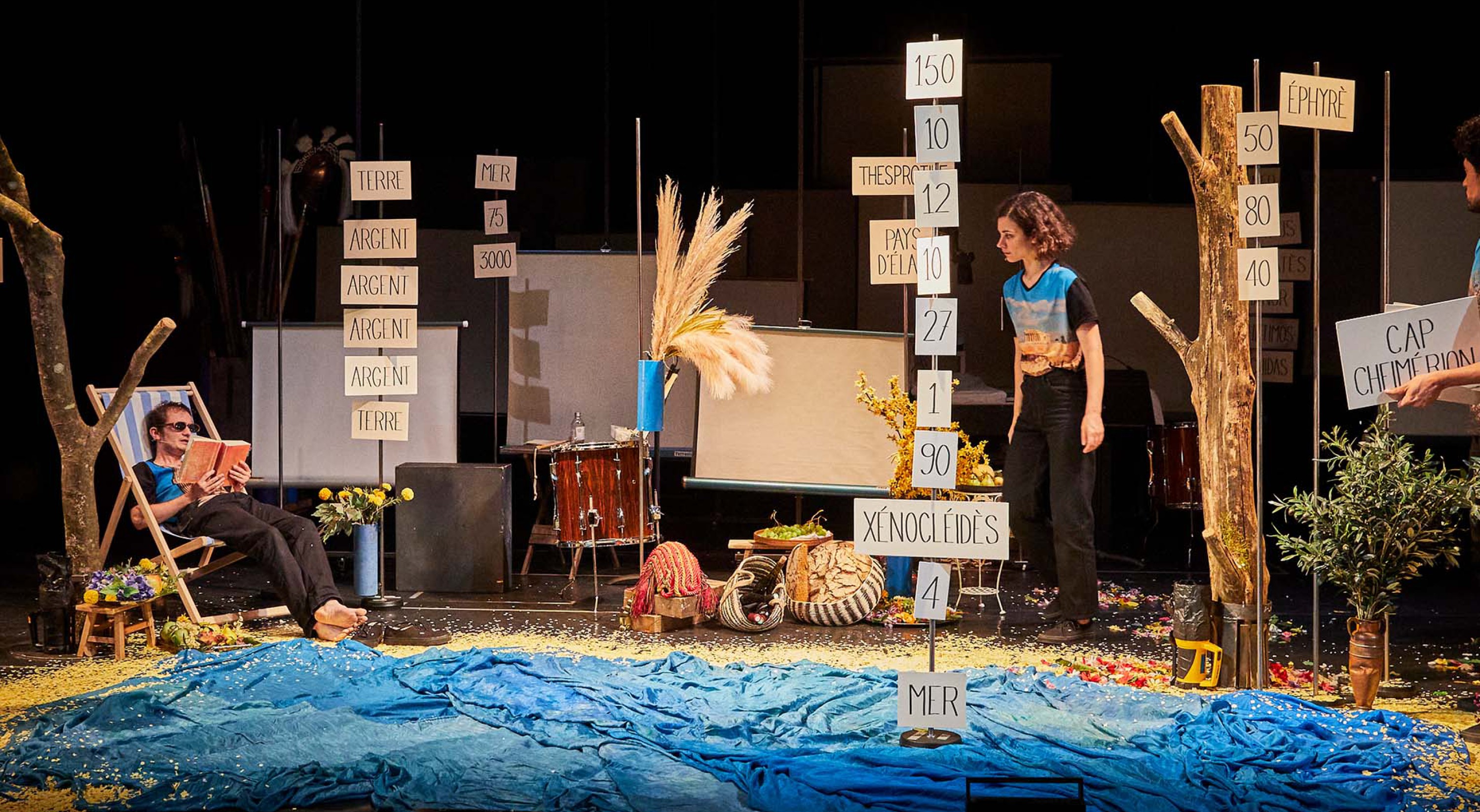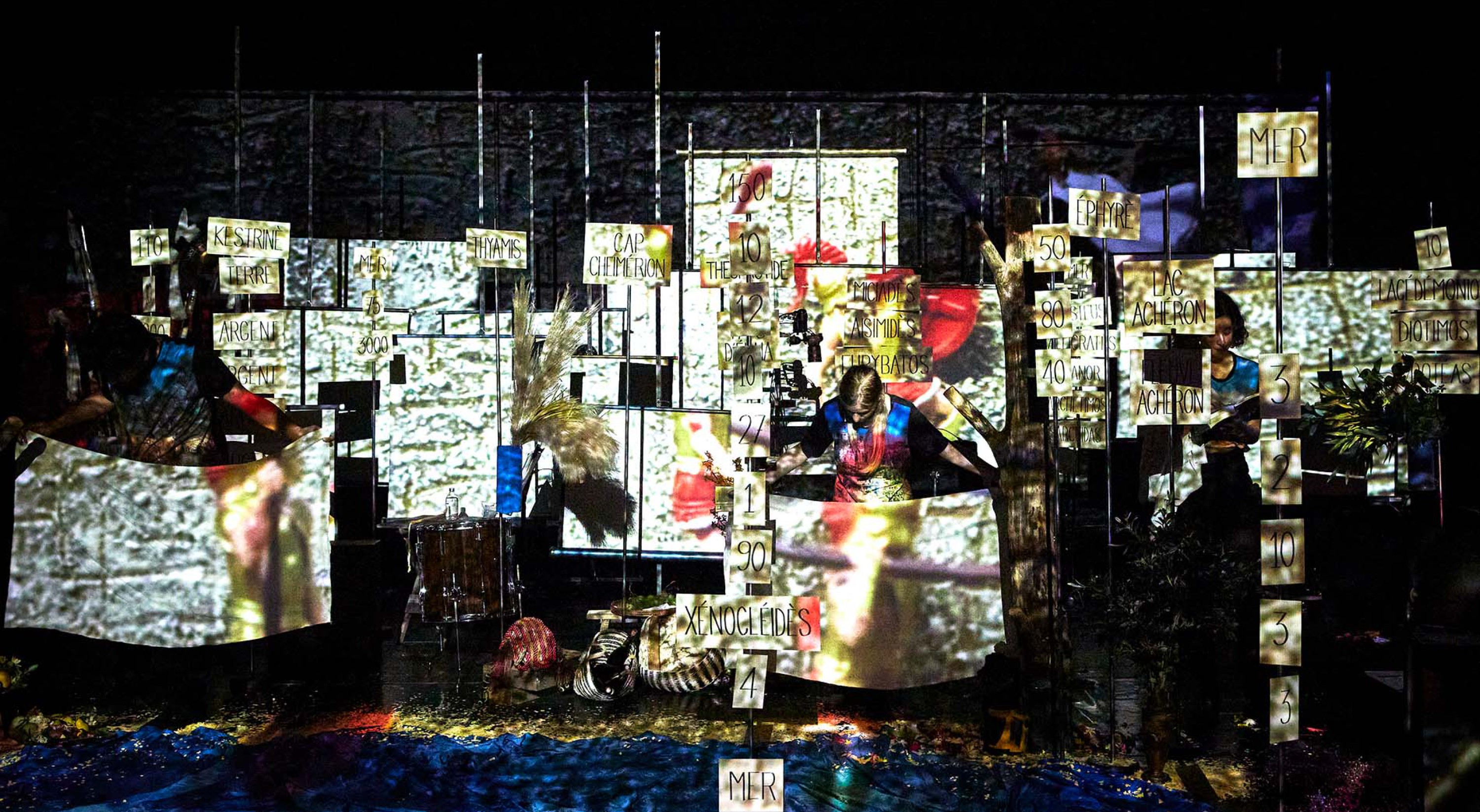Maguy Marin
Y aller voir de plus près
octoberoct 21 – 29
decemberdec 14 – 15
Concept, Maguy Marin
In close collaboration with Antoine Besson, Kais Chouibi, Daphné Koutsafti, and Louise Mariotte
Film by, David Mambouch
Assisted by, Anca Bene
Scale models, Paul Pedebidau
Iconography, Louise Mariotte
Lighting, Alexandre Béneteaud
Sound, Chloé Barbe
Sound and music design, David Mambouch
Stage design, Balyam Ballabeni, and Benjamin Lebreton
Assistant stage design, Côme Hugueny
Costumes, Nelly Geyres
National and international distribution, A Propic / Line Rousseau et Marion Gauvent
A show coproduced by Théâtre de la Ville-Paris and Festival d’Automne à Paris. This show is presented in association with Théâtre de la Ville-Paris and Festival d’Automne à Paris
A coproduction by Théâtre Dijon Bourgogne – Centre dramatique national ; Le Théâtre des 13 vents – Centre dramatique national de Montpellier ; Théâtre + Cinéma, scène nationale de Narbonne ; Compagnie Scènes Théâtre Cinema ; Théâtre de Lorient – Centre dramatique national ; Pôle-Sud, CDCN de Strasbourg ; Les Halles de Shaerbeck (Bruxelles) ; Le Parvis, scène nationale Tarbes Pyrénées ; Théâtre National de Bretagne (Rennes) ; Compagnie Maguy Marin ; Théâtre de la Ville-Paris ; and Festival d’Automne à Paris
In association with Théâtre de la Ville-Paris ; and Festival d’Automne à Paris
Partnership with France Inter
In the face of the cyclical nature of conflicts and human violence, in her new show Maguy Marin opts for historical hindsight. From minor wars to full-scale resistance, the French choreographer invites us, literally, to “look more closely”.
A prominent figure in contemporary dance and committed choreographer, to whom the Festival dedicated a portrait in 2012, Maguy Marin’s different works are spaces for resistance. In Y aller voir de plus près, she delves deep into the multi-layered sediments of History in order to examine it and “question the dead”. In response to ephemeral, yet recurrent acts of barbary, humanity has always stood up against oppression in different ways - which tells us much about the conflicts in today’s world. Among the different sources of inspiration behind Maguy Marin’s work is The History of the Peloponnesian War. This account, by Thucydides, of a great war between Athens and Sparta is considered as one of the earliest examples of an historical text. Spanning Antiquity right up to the present day, four performers navigate a path between struggles, both particular and systemic alike, via associations of ideas and repercussions. In the words of the philosopher René Schérer, “Looking at history from a political point of view enables us to see it in terms of its different moments in time and points of strategic intervention”. And, in the case of Maguy Marin, to stand firm.
In the same place

